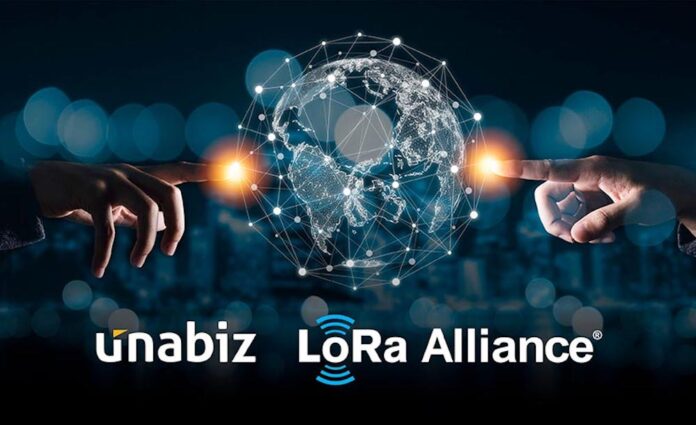The two rival non-cellular IoT technologies formally end hostilities to grow overall Massive IoT market
The Singaporean owners of Sigfox 0G IoT technology, UnaBiz, has become a driving force in bringing together disparate Low-Power Wide Area Network (LPWAN) standards, which in turn will help grow the global Massive IoT market.
UnaBiz – a successful Massive IoT service provider and integrator in its own right before acquiring struggling French firm Sigfox in 2022 – has become a contributor member of the LoRa Alliance, which up until recently was its biggest rival.
Since the acquisition, UnaBiz has set about building bridges between the various IoT camps. In April, it released the Sigfox 0G technology device library code to the IoT development community for all IoT technologies including LTE-M Cellular, LoRaWAN and satellite players.
Most recently, the company signed a global agreement with Soracom to include global cellular connectivity service in its offerings. This follows a series of partnership announcements with LoRaWAN players including The Things Industries, Senet, Loriot and Actility.
While the LoRa Alliance has more than 400 members and plenty of networks roaming is difficult because each national operator must interconnect with neighbouring networks. In contrast, Sigfox is a single global network.
Unabiz is intent on growing the whole market despite competing standards. It has more than 70 so-called 0G operators globally and recently welcomed three new operators in South Africa, Andorra and Turkey, plus two new strategic partners in the Middle East.
“The first step towards technology convergence is understanding our differences,” said UnaBiz co-founder and co-CEO Henri Bong. As a firm believer in an open ecosystem, UnaBiz has worked with various IoT communication technologies in the last seven years, and we understand well that each customer should have the freedom to leverage the uniqueness of each LPWAN in order to capture maximum value from their Massive IoT projects.”
As a contributor, UnaBiz will work with the LoRaWAN ecosystem to deliver LoRaWAN solutions to its customers through its global channels to market. The group is also keen to identify the right partners for go-to-market in its key verticals, especially building and facilities management where it has already deployed LoRaWAN-enabled solutions across the world.
“Solutions providers are a key driver of LoRaWAN adoption and scaled deployments. UnaBiz’s viewpoints on multi-protocol business models align with the LoRa Alliance’s strategy that complementary protocols are required to address Massive IoT use case solutions,” said LoRa Alliance CEO and chairwoman Donna Moore.
Big step in running IP over low power networks
In a separate move that will also accelerate IoT deployments, Unabiz LoRa partner Actility has acquired IP-based LPWAN pioneer Acklio, which has focused on trimming the “fat” IP protocol – a key battery life killer.
Acklio’s Static Context Header Compression (SCHC) technology compresses IP headers, which significantly reduces the amount of data that needs to be transmitted over the network. In 2020, the IETF standardised SCHC as RFC 8724. It was designed to break the remaining barriers that prevented IP applications from running on LPWANs such as LoRaWAN, NB-IoT, and Sigfox.
SCHC removes all overhead and handles segmentation and optimized retransmissions. The LoRa Alliance has also provided a standard profile for SCHC, which makes IP devices first-class citizens on LoRaWAN networks.
“With SCHC and LPWANs, the ‘Internet of Everything’ is now a reality,” said Actility CEO Olivier Hersent on LinkedIn. “We expect many IP protocols, from DLMS/COSEM (metering) to ModBus/TCP (industry), KNX/IP (smart buildings), and OCPP (EV charging), to leverage DHCP to provide new deployment options over LoRaWAN networks. This will lead to a much-improved return on investment for these applications.”



